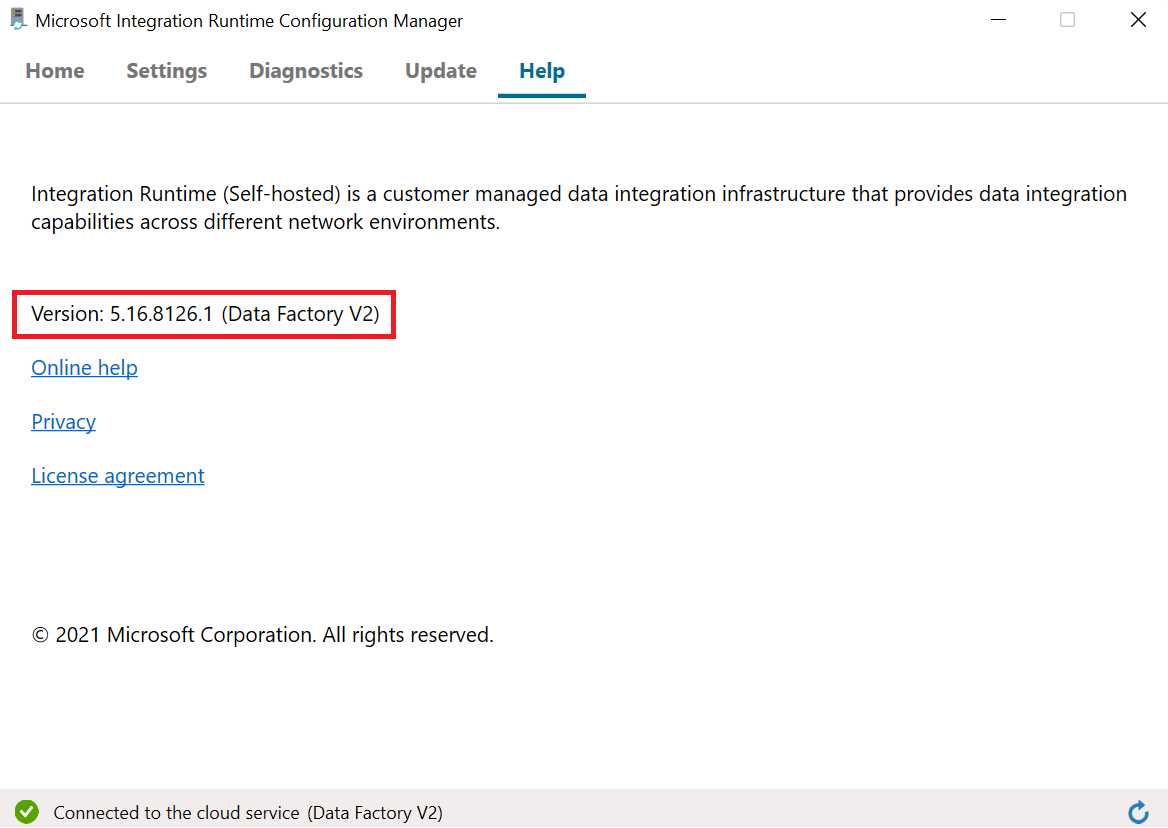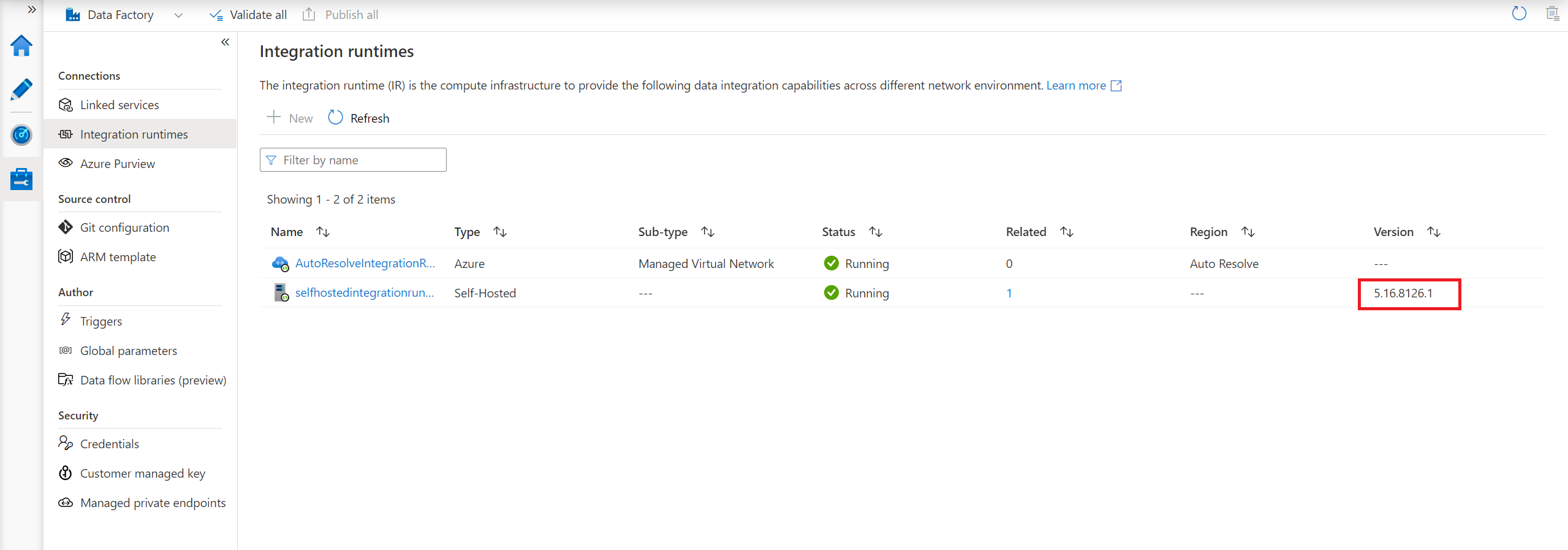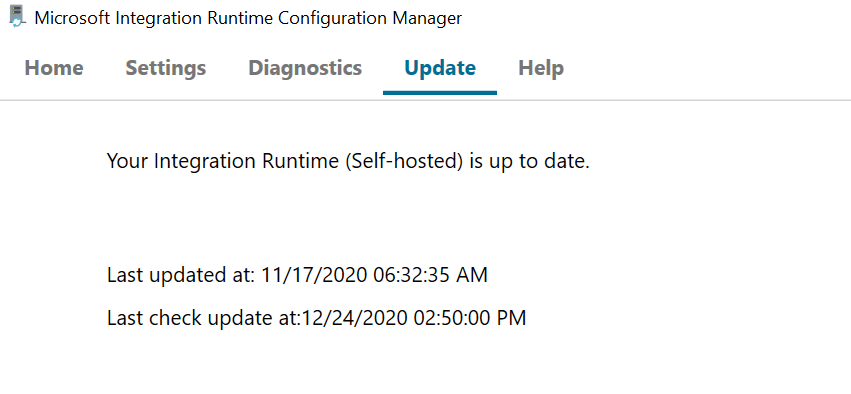Self-hosted integration runtime auto-update and expire notification
APPLIES TO:  Azure Data Factory
Azure Data Factory  Azure Synapse Analytics
Azure Synapse Analytics
Tip
Try out Data Factory in Microsoft Fabric, an all-in-one analytics solution for enterprises. Microsoft Fabric covers everything from data movement to data science, real-time analytics, business intelligence, and reporting. Learn how to start a new trial for free!
This article describes how to let self-hosted integration runtime auto-update to the latest version and how Azure Data Factory (ADF) manages the versions of self-hosted integration runtime.
How to check your self-hosted integration runtime version
You can check the version either in your self-hosted integration runtime client or in the ADF portal:


Self-hosted Integration Runtime Auto-update
Generally, when you install a self-hosted integration runtime in your local machine or an Azure VM, you have two options to manage the version of self-hosted integration runtime: auto-update or maintain manually. Typically, ADF releases two new versions of self-hosted integration runtime every month, which includes new features released, bugs fixed, and enhancements. So we recommend users to update to the latest version.
The most convenient way is to enable auto-update when you create or edit self-hosted integration runtime. The self-hosted integration runtime is automatically update to newer version. You can also schedule the update at the most suitable time slot as you wish.

You can check the last update datetime in your self-hosted integration runtime client.

You can use this PowerShell command to get the auto-update version.
Note
If you have multiple self-hosted integration runtime nodes, there is no downtime during auto-update. The auto-update happens in one node first while others are working on tasks. When the first node finishes the update, it will take over the remain tasks when other nodes are updating. If you only have one self-hosted integration runtime, then it has some downtime during the auto-update.
Auto-update version vs latest version
To ensure the stability of self-hosted integration runtime, although we release two versions, we'll only push one version every month. So sometimes you find that the auto-updated version is the previous version of the actual latest version. If you want to get the latest version, you can go to download center and do so manually. Additionally, auto-update to a new version is managed internally. You can't change it.
The self-hosted integration runtime Auto update page in the ADF portal shows the newer version if current version is old. When your self-hosted integration runtime is online, this version is auto-update version and will automatically update your self-hosted integration runtime in the scheduled time. But if your self-hosted integration runtime is offline, the page only shows the latest version.
If you have multiple nodes, and for some reasons that some of them aren't auto-updated successfully. Then these nodes roll back to the version, which was the same across all nodes before the auto-update.
Self-hosted Integration Runtime Expire Notification
If you want to manually control which version of self-hosted integration runtime, you can disable the setting of auto-update and install it manually. Each version of self-hosted integration runtime expires in one year. The expiring message is shown in ADF portal and self-hosted integration runtime client 90 days before expiration.
Related content
Feedback
Coming soon: Throughout 2024 we will be phasing out GitHub Issues as the feedback mechanism for content and replacing it with a new feedback system. For more information see: https://aka.ms/ContentUserFeedback.
Submit and view feedback for